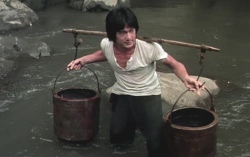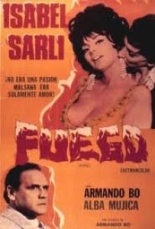
 Argentina hottie Isabel Sarli fires up Fuego as Laura, a bored, well-to-do horndog with lotsa eye shadow and enormous breasts. All she likes to do is get it on, with pretty much anyone who’s breathing and within reach. For some reason, this prompts feeling of undying love in Carlos (writer/director/producer Armando Bo, who also romanced Sarli in real life). Soon after meeting her, he proposes marriage; she responds by rubbing snow all over her chest. Cute, but is that a yes or a no?
Argentina hottie Isabel Sarli fires up Fuego as Laura, a bored, well-to-do horndog with lotsa eye shadow and enormous breasts. All she likes to do is get it on, with pretty much anyone who’s breathing and within reach. For some reason, this prompts feeling of undying love in Carlos (writer/director/producer Armando Bo, who also romanced Sarli in real life). Soon after meeting her, he proposes marriage; she responds by rubbing snow all over her chest. Cute, but is that a yes or a no?
At first, Carlos is pretty quick to forgive Laura of her indiscretions, like when he trots around town in a fur coat and go-go boots, pulling her breasts out of her bra to show random men on the street, eventually coercing a greasy stranger to do her in the woods. What bothers Carlos most is that she also lets their ugly lesbian housekeeper have a go, kissing Laura’s naked body after a swim, toweling her off following a shower and ticking her employer’s reclining bosom with a feather.
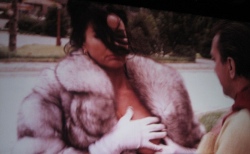 Laura can’t explain it, other than crying, “I’m being consumed by the sexual fire inside! I need men! I need men!” The doctor, however, says her unquenchable thirst for lovin’ is a pathological condition. And as he gives her a gynecological exam, she writhes, moans and begs, “Don’t stop now!”
Laura can’t explain it, other than crying, “I’m being consumed by the sexual fire inside! I need men! I need men!” The doctor, however, says her unquenchable thirst for lovin’ is a pathological condition. And as he gives her a gynecological exam, she writhes, moans and begs, “Don’t stop now!”
As if you need to be told by now, Fuego is a hoot, made all the more hollerable by its catchy Latin theme song, which blares every time Laura gets her groove on, which is at least a dozen. Although clearly past her prime, Sarli is hot in that voluptuous but odd, racked-up-the-mileage sorta way. She also plays with her boobs more than a teenage boy who magically woke up one morning with a pair.
The tragic and paranormal ending is pretty ludicrous, more at home in a Spanish soap opera than a lurid number like this. And yet, it’s all so Sarlicious, I can’t complain. —Rod Lott

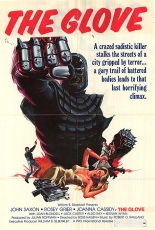
 Deadbeat dad John Saxon plays a bounty hunter in Los Angeles — and not a cool bounty hunter like Boba Fett, but a bounty hunter like … well, like John Saxon. The first loser we see him bust is a large guy with a gay lover who plays the flute while in a Jacuzzi! Later, he accosts another target — a guy named Cookie — in a slaughterhouse, leading to an extended fight using slabs of meat!
Deadbeat dad John Saxon plays a bounty hunter in Los Angeles — and not a cool bounty hunter like Boba Fett, but a bounty hunter like … well, like John Saxon. The first loser we see him bust is a large guy with a gay lover who plays the flute while in a Jacuzzi! Later, he accosts another target — a guy named Cookie — in a slaughterhouse, leading to an extended fight using slabs of meat!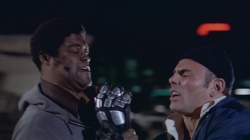
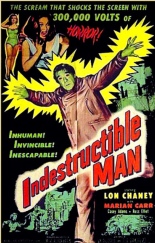
 First of all, the
First of all, the 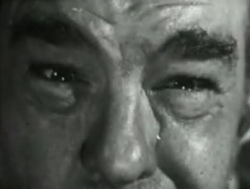
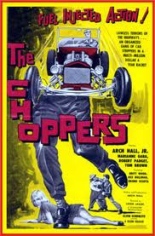
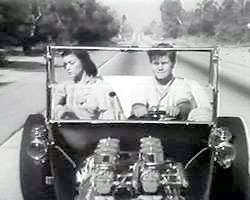
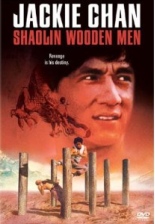
 Certainly not the best of Jackie Chan’s string of Lo Wei films early in his career,
Certainly not the best of Jackie Chan’s string of Lo Wei films early in his career, 